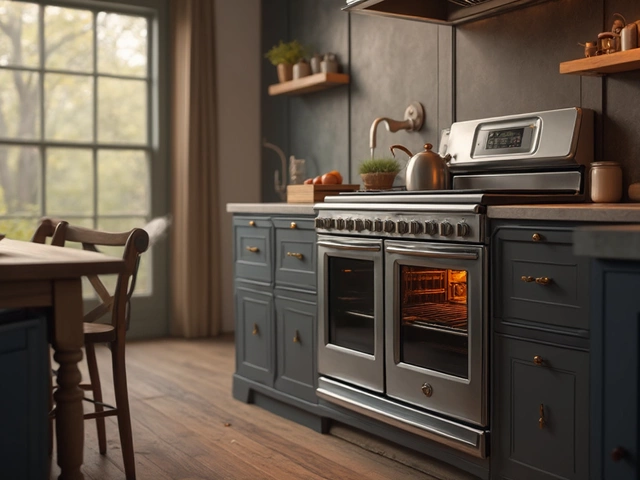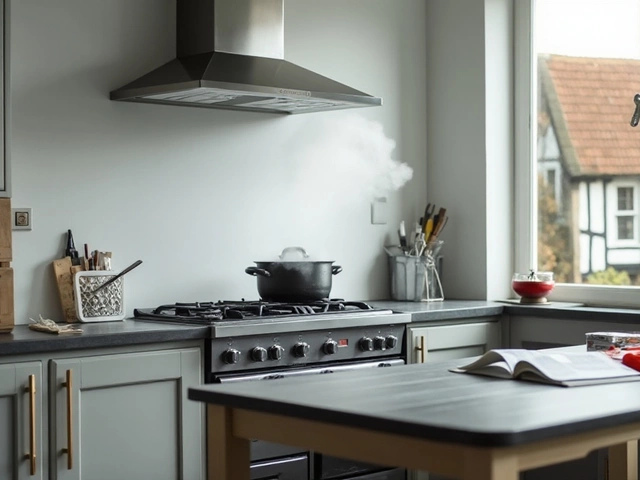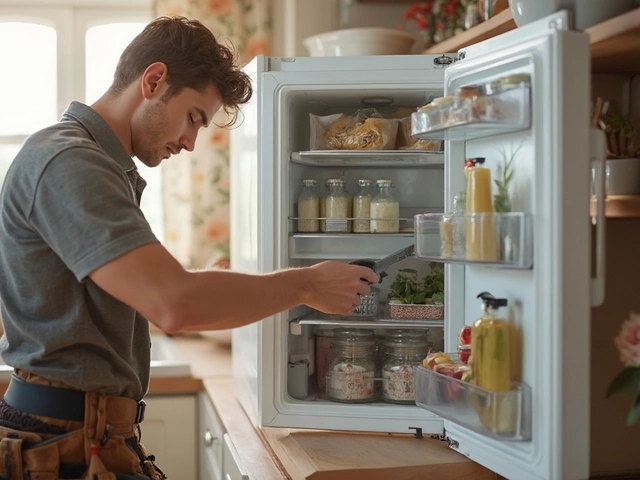If your oven is acting up, the culprit is often a single part that can be swapped out. From a cold oven to uneven heating, most problems point to the heating element, thermostat, door seal, or fan. Knowing which part to replace and how to do it saves time and money.
Heating element – This metal coil creates the heat. When it’s broken or burnt out, the oven stays cold or heats unevenly. Look for visible cracks or a burnt smell.
Thermostat or temperature sensor – If the oven runs too hot or too cool, the sensor is likely sending wrong signals. You can test it with a multimeter; a reading far from the spec means replace.
Door seal (gasket) – A cracked or torn seal lets heat escape, causing longer cooking times. Feel for drafts or see gaps when the door is closed.
Cooling fan – Some electric ovens use a fan to spread heat. A noisy or stopped fan leads to hot spots. Check that it spins freely and isn’t blocked.
1. Unplug the oven – Safety first. Pull the plug or turn off the circuit breaker.
2. Remove the old part – For an element, take out the back panel, disconnect the wiring, and unscrew the element clips. For a thermostat, locate the sensor, unscrew it, and pull the wiring connector.
3. Match the new part – Bring the old part to a hardware store or order online. Make sure the model number and voltage match your oven.
4. Install the new part – Reverse the removal steps. Secure the element or thermostat, reconnect wires, and re‑attach any panels.
5. Test the oven – Plug it back in, set a temperature, and watch for proper heating. If the oven still misbehaves, the fault may be the control board or wiring, which usually needs a pro.
Most replacements take under an hour and cost between £20 and £80, depending on the part. If you’re not comfortable handling wires, call a qualified repair service.
Regular care can keep parts from failing. Clean the oven interior after each use, check the door seal every few months, and avoid slamming the door. A quick visual check of the element for discoloration can catch problems early.
When you’re stuck, remember that professional help isn’t just about fixing the immediate issue. A qualified technician can spot hidden faults, test electrical safety, and ensure the oven meets UK regulations.
Bottom line: most oven hiccups boil down to a single part. Spot the symptom, match the part, and follow the safety steps. You’ll be back to baking, roasting, and grilling without a lengthy service call.

Wondering if your 20-year-old oven can be repaired? Discover repair tips, replacement part insights, costs, and when it makes sense to swap your old oven for a new one.

Choosing an oven that stands the test of time goes beyond looks and price. This article delves into which oven brands are celebrated for their durability. We'll explore how build quality, materials, and innovative technologies play a role in longevity. Plus, you’ll get insider tips on maintaining your oven for years to come. Discover how to make a smart choice today that benefits you tomorrow.

Extractor fans play a pivotal role in maintaining air quality in kitchens and bathrooms by expelling moisture, odors, and smoke. If your extractor fan suddenly stops working, it can lead to persistent humidity or unpleasant smells. This guide provides practical steps for diagnosing and fixing common issues that can cause an extractor fan to malfunction. From checking power supply and fuses to cleaning and replacing parts, understanding the intricacies can save you time and money. By following these steps, you can restore your extractor fan’s functionality and maintain a comfortable home environment.

Boiler servicing is an essential aspect of home maintenance that ensures safety and efficiency. While it might seem tempting for homeowners to attempt servicing their own boilers, it's crucial to understand the complexities and risks involved. This article explores whether boiler maintenance can be a DIY project, providing key tips and insights. It offers guidance on what aspects are safe to handle on your own and when to call in a professional.

Want to know how much Geek Squad at Best Buy will charge for fixing your laptop? This article breaks down their pricing and services, so you know exactly what to expect before you hand over your device. You'll learn what affects the cost, whether a protection plan is worth it, and get the lowdown on real-life repair scenarios. Plus, there are tips to help you save some cash or avoid common headaches. No tech jargon or fancy lingo—just straight answers.

Resetting a freezer compressor may sound daunting, but it's an essential skill for maintaining your appliance's efficiency. Compressors can occasionally need a reset to function properly, potentially saving you from costly repairs or replacements. This article walks you through the steps to safely reset your freezer compressor and offers tips to prevent future issues. Understanding when and why to reset your compressor can keep your freezer running smoothly and extend its lifespan.